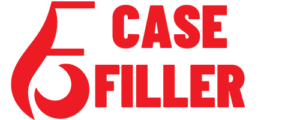ACTH Blood Test Fasting
Whether or not you need to fast before an ACTH test depends on the specific instructions provided by your healthcare provider or the laboratory conducting the test.
ACTH Blood Test Fasting
Generally, an ACTH test does not require fasting, as it measures the level of adrenocorticotropic hormone (ACTH) in the blood, which is not significantly affected by food intake. However, your healthcare provider may recommend fasting if you are also having other blood tests done at the same time, which may require fasting.
It’s always best to follow the instructions given to you by your healthcare provider or the laboratory, as they will provide you with specific guidelines tailored to your individual needs. If you have any questions or concerns about preparing for your ACTH test, be sure to discuss them with your healthcare provider.
Acth Blood Test Fasting
It’s important to follow the instructions given to you by your healthcare provider or the laboratory conducting the test. If you have any questions or concerns about preparing for your ACTH blood test, be sure to discuss them with your healthcare provider.
It’s worth noting that certain medications, including corticosteroids, may affect the results of an ACTH blood test. Your healthcare provider will likely provide you with instructions on how to prepare for the test if you are taking any medications that may interfere with the results.
Zinc Blood Test Fasting
In general, it’s important to avoid taking any supplements that contain zinc for at least 24 hours before the test, as they can affect the results. Additionally, certain medications, such as diuretics and antibiotics, may also interfere with the accuracy of the results. Your healthcare provider will likely provide you with instructions on how to prepare for the test if you are taking any medications that may affect the results.
If you have any questions or concerns about preparing for your zinc blood test, be sure to discuss them with your healthcare provider.
4 Hour Fasting Blood Test
It’s important to follow the instructions given to you by your healthcare provider or the laboratory conducting the test. They may provide you with specific instructions on how long you should fast before the test and what you can and cannot consume during the fasting period.
If you are taking any medications or supplements, it’s important to discuss this with your healthcare provider, as some may affect the accuracy of the test results. In some cases, your healthcare provider may advise you to temporarily stop taking certain medications before the test.
If you have any questions or concerns about preparing for your 4-hour fasting blood test, be sure to discuss them with your healthcare provider. They can provide you with specific instructions tailored to your individual needs.
6 Hour Fasting Blood Test
A 6-hour fasting blood test requires you to fast for 6 hours before the blood draw. During this time, you should not eat or drink anything other than water. This type of fasting is typically required for tests that measure lipid levels, such as cholesterol and triglycerides.
It’s important to follow the instructions given to you by your healthcare provider or the laboratory conducting the test. They may provide you with specific instructions on how long you should fast before the test and what you can and cannot consume during the fasting period.
If you are taking any medications or supplements, it’s important to discuss this with your healthcare provider, as some may affect the accuracy of the test results. In some cases, your healthcare provider may advise you to temporarily stop taking certain medications before the test.
If you have any questions or concerns about preparing for your 6-hour fasting blood test, be sure to discuss them with your healthcare provider. They can provide you with specific instructions tailored to your individual needs.



